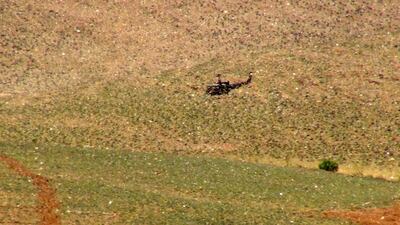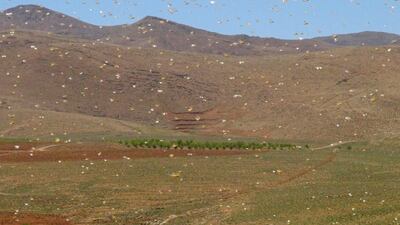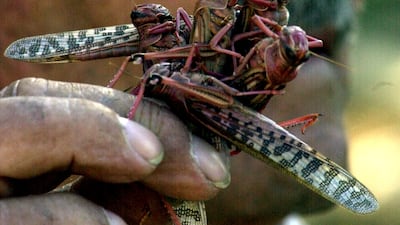A plague of locusts that swept across the Middle East has reached Lebanon, threatening precious farmland in an event described by the UN as “very rare”.
Helicopters were deployed by the Lebanese military to spray pesticides across the regions of Baalbek and Ras Baalbek under direction from the Agriculture Ministry after a swarm of the pests crossed through Jordan and Syria to reach the cedar state from Saudi Arabia.
Videos of the swarms were posted on social media, with many asking if disaster-struck Lebanon was on the cusp of a biblical plague.
The pests are renowned for devastating huge areas of farmland, and often blight east Africa, Saudi Arabia and up to Iraq, though wind patterns can help them travel further.
Lebanon’s Agriculture Ministry said it had succeeded in killing a great number of the locusts before they reached the vast farmlands of Lebanon’s south, though fears remained that the pests could threaten the agricultural sector as Lebanon fights a cascade of political and economic crises.
“We managed – in little time – to destroy huge numbers, but some have escaped and there are large quantities still, mostly in the Hermel area of Marjaheen,” Caretaker Agriculture Minister Abbas Mortada told reporters.
The UN’s Food and Agriculture Organisation (FAO) described the spreading of the locusts so far as “unusual and rare,” attributing it to strong southerly winds and high temperatures. They played down the pests, saying the swarm did not represent a “large-scale invasion”.
The biblical imagery was appreciated by Lebanese, who took to social media to comment on the pests with a strong sense of irony.
“Locusts will not find anything in Lebanon since the politicians have devoured everything,” wrote one user on Twitter.
A swarm of locusts decimated the country's crops in 1915, leading to a three-year crisis that became known as The Great Famine.
The agricultural sector was dealt a separate blow this week when Saudi Arabia announced the banning of fruit and vegetable imports from the country following a major drugs bust of amphetamines in a shipment of pomegranates. Shipments to the Gulf account for 55 per cent of all Lebanon’s fruit and vegetable exports.






